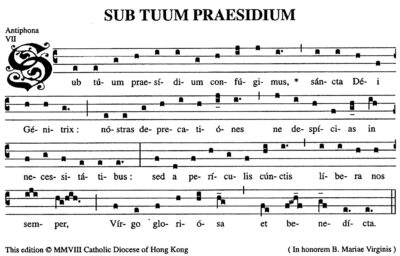These are interesting coincidences. The liturgical readings of today’s Mass also suggest something to say about the Synod.
The first lesson is on the prophet Jonah, displeased that God sends him to preach penance to the people of Nineveh, the hated enemies of the chosen people.
In the Gospel, Jesus presents a Samaritan, a despised schismatic, as a model of charity, in preference to two “ecclesiastics”.
Here is «down with clericalism!», «welcome everyone everyone everyone to the tent!».
In the Synod of Jerusalem, not just any change was made, it was the meditation on the word of God and on the extraordinary events that made it clear that the time for a change has arrived, the prefigurations must give way to the New Covenant which is the full realization of universal salvation according to God’s eternal plan. A great novelty, but in continuity, not in rupture. The miracle of tongues on the day of Pentecost was already a clear message, but the Holy Spirit works gradually.
It should be noted that Jonah was sent to preach penance (conversion) and the entire people of Nineveh accepted the warning (not sweet words, but a threat of destruction).
The journey of Jesus with the two disciples of Emmaus is often given as an example of synodality. It is not that those two disciples converted Jesus, but it was Jesus who began to rebuke them for their hardness of heart and with the Scriptures opened their minds and hearts. And at the (Eucharistic?) banquet, Jesus allowed himself to be recognized. The conclusion is that the two disciples immediately made the arduous journey, backward, returning to the community of Jerusalem, submerged in the joy of the new Easter.

